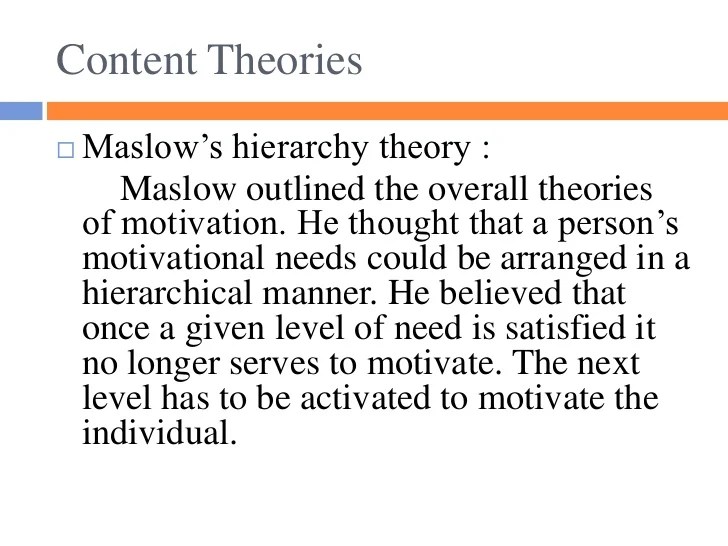Which statements about motivation are true? Delve into the captivating realm of motivation, where intrinsic and extrinsic forces collide, shaping our actions and aspirations. This discourse unveils the intricacies of motivation, exploring its impact on our personal and professional lives.
Motivation, the driving force behind human behavior, manifests in myriad forms. Intrinsic motivation, fueled by an inherent desire for satisfaction, propels us towards activities we find inherently rewarding. Extrinsic motivation, on the other hand, arises from external rewards or punishments, influencing our actions to attain desired outcomes.
Intrinsic Motivation

Intrinsic motivation refers to the inherent drive to engage in an activity for its own sake, without any external rewards or incentives. It arises from an individual’s interest, enjoyment, or sense of purpose in the activity itself.
Intrinsic motivation differs from extrinsic motivation, which is driven by external rewards or consequences. Intrinsically motivated individuals are more likely to persist in an activity, even when faced with challenges, because they find it inherently rewarding.
Examples of intrinsically motivating activities include pursuing hobbies, playing games, engaging in creative activities, or learning new skills.
Extrinsic Motivation: Which Statements About Motivation Are True

Extrinsic motivation refers to the drive to engage in an activity in order to obtain an external reward or avoid a punishment. It is driven by factors such as money, grades, social recognition, or the avoidance of negative consequences.
Extrinsic motivation can be effective in the short term, but it may not lead to long-term engagement or sustained performance. Extrinsically motivated individuals may become less interested in an activity once the external rewards are removed.
Examples of extrinsically motivating factors include working for a salary, studying for a grade, or exercising to lose weight.
Theories of Motivation

Maslow’s Hierarchy of Needs Theory, Which statements about motivation are true
Maslow’s hierarchy of needs theory proposes that human needs are arranged in a hierarchical order, with physiological needs (such as food, water, and shelter) at the base and self-actualization needs (such as creativity, personal growth, and fulfillment) at the top.
According to this theory, individuals must satisfy their lower-level needs before they can focus on higher-level needs. For example, a person who is struggling to meet their basic physiological needs is unlikely to be motivated to pursue self-actualization.
Herzberg’s Two-Factor Theory
Herzberg’s two-factor theory distinguishes between hygiene factors and motivation factors.
- Hygiene factorsare those that prevent dissatisfaction, such as salary, working conditions, and company policies.
- Motivation factorsare those that create satisfaction and motivate individuals to perform well, such as recognition, responsibility, and opportunities for growth.
Herzberg’s theory suggests that hygiene factors are necessary to prevent dissatisfaction, but they do not necessarily lead to motivation. Motivation factors, on the other hand, are essential for creating a positive and motivating work environment.
Expectancy Theory
Expectancy theory proposes that motivation is influenced by an individual’s expectations about the relationship between their effort, performance, and rewards.
- Expectancyis the belief that effort will lead to performance.
- Instrumentalityis the belief that performance will lead to rewards.
- Valenceis the value that an individual places on the rewards.
According to expectancy theory, individuals are motivated to engage in activities when they believe that their effort will lead to desired outcomes and that those outcomes are valued.
Commonly Asked Questions
What is the key difference between intrinsic and extrinsic motivation?
Intrinsic motivation stems from an internal desire for enjoyment or satisfaction, while extrinsic motivation is driven by external rewards or punishments.
How can I enhance my intrinsic motivation?
Engage in activities that you find inherently rewarding, set challenging yet achievable goals, and foster a growth mindset.
What are some effective strategies for motivating employees?
Create a positive and supportive work environment, provide opportunities for professional development, and recognize and reward employee achievements.
